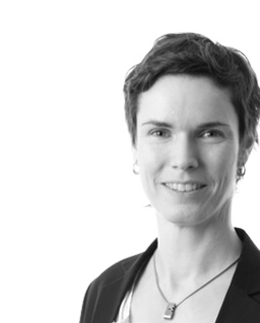Torger Möller studied Sociology, Computer Science, Medical Sociology and Economics at the Universities of Marburg and Hamburg. He was a member of the Institute of Science and Technology Studies at the University of Bielefeld from 1999 to 2003. From 2003 to 2007 he worked at the Berlin-Brandenburg Academy of Science and Humanities in the federal research programme "Knowledge for Decision-making Processes - Research on the Relationship between Science, Politics and Society". During this time he also held courses at the Charité University Hospital. Afterwards he worked at the Department of Risk Communication at the Federal Institute for Risk Assessment. In 2008 the Institut Mensch, Ethik und Wissenschaft awarded him a prize for young academics for the results of his doctoral thesis. From 2009 to 2011 he worked at the Center for Cluster Development at the Freie Universität Berlin. Torger Möller has been a member of the DZHW (previously iFQ) since April 2011.

Dr. Torger Möller
Research Area Governance in Higher Education and Science
Researcher
- +49 511 450670-327
Academic research fields
Science Studies, Research Evaluation, Governance, Bibliometrics, Research Funding and Peer Review
List of projects
List of publications
Publikationen als Outputdimension der Forschungsförderung.Möller, T., & Dittmann, P. (2025).Publikationen als Outputdimension der Forschungsförderung. Internationalität und Exzellenz in bibliometrischer Perspektive. DAAD Forschung Kompakt. Bonn: DAAD. https://doi.org/10.46685/DAADStudien.2025.02 |
Gender bias in grant allocation shows a decline over time.van den Besselaar, P., Möller, T., Mom, C., Cruz-Castro, L., & Cruz-Castro, L. (2024).Gender bias in grant allocation shows a decline over time. In STI 2024 (Hrsg.), Proceedings of the 28th International Conference on Science, Technology and Innovation Indicators (STI2024). Berlin: STI2024. https://doi.org/10.5281/zenodo.14176637 |
Are there factors that influence the quality of funding acknowledgements in publications?Möller, T., Scheidt, B., & Meier, A. (2024).Are there factors that influence the quality of funding acknowledgements in publications? In STI2024 (Hrsg.), Proceedings of the 28th International Conference on Science, Technology and Innovation Indicators (STI2024). Berlin: STI2024. https://doi.org/10.5281/zenodo.14174157 |
Funding decision and applicants' careers. A case study of an early career grant.Möller, T. (2024).Funding decision and applicants' careers. A case study of an early career grant. In STI2024 (Hrsg.), Proceedings of the 28th International Conference on Science, Technology and Innovation Indicators (STI2024). Berlin: STI2024. https://doi.org/10.5281/zenodo.14171970 |
The Long and Winding Road to Excellence: The German Case.Möller, T., & Hornbostel, S. (2023).The Long and Winding Road to Excellence: The German Case. In M. Yudkevich, P. G. Altbach, & J. Salmi (Hrsg.), Academic Star Wars: Excellence Initiatives in Global Perspective (S. 177-201). Cambridge, Massachusetts: The MIT Press. https://doi.org/10.7551/mitpress/14601.003.0012 |
Synthesis report on gender differences in grant application behaviour.Möller, T., Holzinger, F., Schön, L., Wedening, P., & Deixelberger, B. (2023).Synthesis report on gender differences in grant application behaviour. Berlin: DZHW. Abstract
This deliverable provides a summary of the findings of Work Package 7 of the GRANteD project. The results are based on seven online surveys carried out among researchers in six European countries. In Austria, Ireland, Poland, Slovakia and Sweden, applicants to specific research funding programs were surveyed. In Germany, a representative survey was conducted among academics as potential applicants at universities (DZHW Scientist Survey). In addition, the data of doctoral graduates of the DZHW PhD panel were analyzed. The overall findings indicates that there are hardly any gender differences in application behavior of academics. |
What to do against gender bias in grant allocation?van den Besselaar, P., Mom, C., Cruz-Castro, L., Sanz Menéndez, L., Möller, T., ... & Husu, L. (2023).What to do against gender bias in grant allocation? Amsterdam: TMC. Abstract
This text summarized the recommendations that can be distilled from the research done in the GRANteD project, and from the interactions with the Stakeholder Committee, the Scientific Advisory Board, and at other exchanges with researchers in the field and with stakeholders in different interactions. |
Identifying and explaining gender differences in grant decision outcomes: The results of the case studies.Möller, T., van den Besselaar, P., Cruz-Castro, L., Sanz Menéndez, L., Sandström, U., & Mom, C. (2023).Identifying and explaining gender differences in grant decision outcomes: The results of the case studies. Berlin, Amsterdam: DZHW / TMC (nicht zur Veröffentlichung vorgesehen). |
Are there gender differences in the number of research proposals submitted?Möller, T. (8. August 2023).Are there gender differences in the number of research proposals submitted [Blogbeitrag]. Abgerufen von https://www.granted-project.eu/blogpost-9-are-there-gender-differences-in-the-number-of-research-proposals-submitted/ |
Determinants of cognitive mobility.Mom, C., Möller, T., & van den Besselaar, P. (2023).Determinants of cognitive mobility. In ISSI (Hrsg.), Proceedings of ISSI 2023 - the 19th International Conference of the International Society of Scientometrics and Informetrics (ISSI 2023). Bloomington, United States: International Society for Scientometrics and Informetrics. |
Do female academics submit fewer grant applications than men?Möller, T. (2023).Do female academics submit fewer grant applications than men? 27th International Conference on Science, Technology and Innovation Indicators (STI 2023). https://doi.org/10.55835/644303d4b2b5580ba561581a (Abgerufen am: 21.04.2023). https://doi.org/10.55835/644303d4b2b5580ba561581a Abstract
The state of the research on grant application behaviour is that female academics submit fewer proposals than men. This study points out that it is methodologically challenging to draw this conclusion. We know a lot about applicants, but little about the pool of potential applicants as the underlying population. We use a random sample of academics as potential applicants to investigate the grant application activity of male and female researchers. The results show that when an appropriate benchmark is applied (in this case, controlling for academic status and research area), no significant gender differences in grant applications can be found. |
Two Longitudinal Papers Concerning Gender Disparities in Science Careers.Sandström, U., Sandström, E., Mom, C., van den Besselaar, P., & Möller, T. (2022).Two Longitudinal Papers Concerning Gender Disparities in Science Careers. Stockholm, Amsterdam, Berlin: Forskningspolitik Sverige AB, TMC BV, DZHW (nicht zur Veröffentlichung vorgesehen). |




